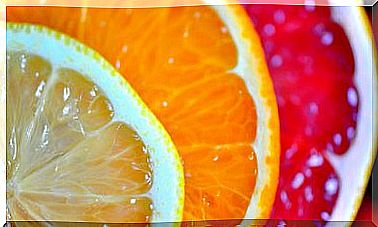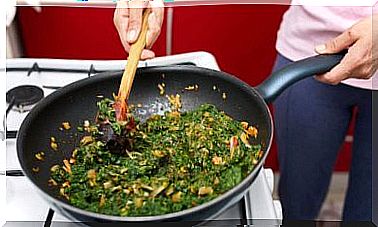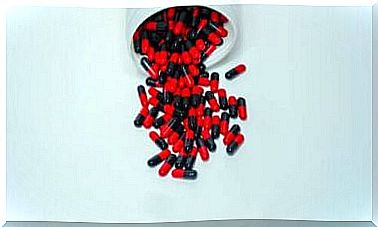Prolactin: What Is It And How Does It Work?
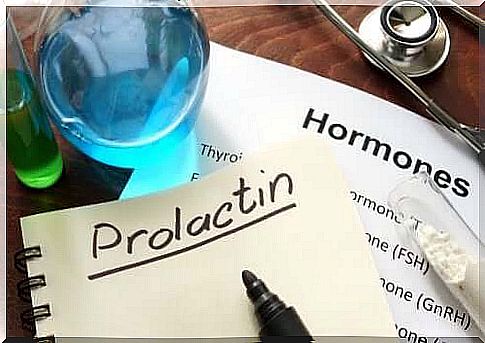
Prolactin is a hormone composed of several peptides, which is mainly synthesized by adenohypophyseal cells.
Among these functions, we can say that the main ones are to produce milk in the mammary glands and to synthesize progesterone in the corpus luteum.
When the baby sucks the nipple during breastfeeding, it favors the synthesis of a higher quality of this hormone. It is regulated by positive feedback.
On the other hand, it is a hormone that tends to vary easily, given certain factors that increase or decrease stress.
Functions of prolactin in the body
Given the wide distribution of prolactin receptors in mammals, this hormone exerts several actions in the body. Let’s see the most studied.
reproduction
Prolactin plays an important role in the morphological and functional development of the mammary gland, as well as in the secretory activity of the corpus luteum. Thus, it affects reproductive functions.
Thanks to prolactin, the tubuloalveolar ducts of the mammary gland can branch, grow and develop during pregnancy. In addition, when synthesizing milk, this hormone performs several functions:
- Stimulates amino acid uptake.
- Increases casein and lactalbumin synthesis.
- Stimulates glucose uptake.
- Increases the synthesis of lactose and fatty acids in milk.

homeostasis
In addition to regulating reproductive functions, prolactin also controls a set of self-regulating functions that maintain the composition and properties of the body’s internal environment.
Among them, the immunoregulatory actions of prolactin stand out, which are directly or indirectly involved in the development and maturation of cells in the thymus and peripheral lymphoid organs.
It also regulates homeostasis by controlling the transport of sodium, calcium and chloride ions across the epithelial membranes of the intestine, the uptake of amino acids by the epithelial cells of the mammary gland, and other ions and water in the kidneys.
In the sweat and lacrimal glands, prolactin modulates its ionic composition.
Regulation of prolactin secretion
The physiological stimuli that regulate prolactin secretion are multiple:
- Nipple suction during breastfeeding.
- Stress.
- Increased ovarian steroids, especially estrogens.
- Others.
All these stimuli are collected by the hypothalamus and begin to synthesize prolactin releasing factors and inhibitory factors. Thus, the hypothalamus exerts a primarily inhibitory effect on prolactin synthesis and secretion.
In addition, the synthesis and secretion of this hormone are influenced by many other factors released by other adenohypophyseal cells, in addition to others from the pituitary gland.
On the other hand, dopamine is the main inhibitor of prolactin synthesis and secretion. This neurotransmitter, after interacting with dopamine D2 receptors on the membrane of lactotropic cells, exerts its inhibitory function.
Other substances that also modulate the secretion of this hormone are:
- Histamine: acts through H1 and H2 receptors. Activation of the former has a stimulating effect on prolactin secretion. On the contrary, the activation of H2 inhibits it.
- Acetylcholine: its activation favors dopamine secretion and the consequent inhibition of prolactin secretion.
- Thyroid-stimulating hormone: in addition to its role in the thyroid gland, it also stimulates the secretion of prolactin by the lactotropic pituitary cells.
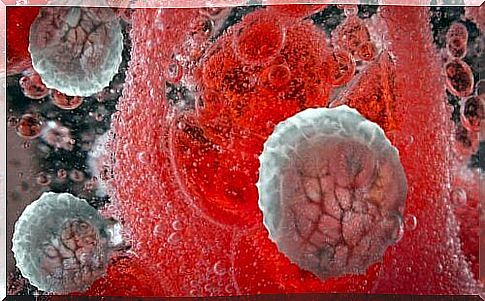
Pituitary prolactin secretion patterns
Prolactin levels vary throughout life. In childhood, they are high and decrease to adult levels.
During the old age stage, there is again an increase in these levels related to the weakening of hypothalamic inhibitor control.
Furthermore, plasma concentrations of this hormone also vary throughout the day, being higher during the sleep period than during the waking period.
Conclusion
Prolactin is a natural hormone in the body, involved in numerous biochemical processes. However, its main function is found during the reproductive and homeostatic period.
